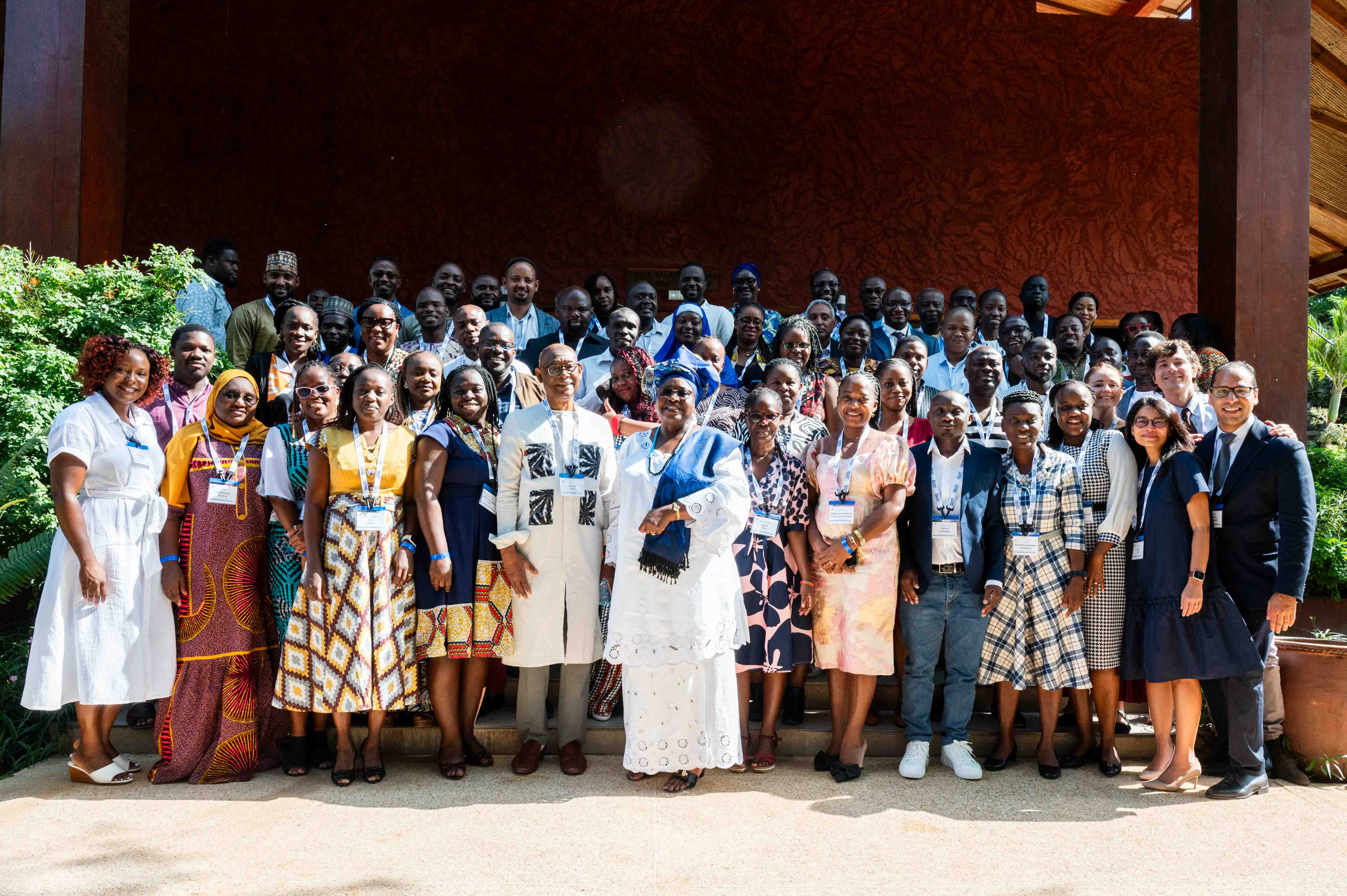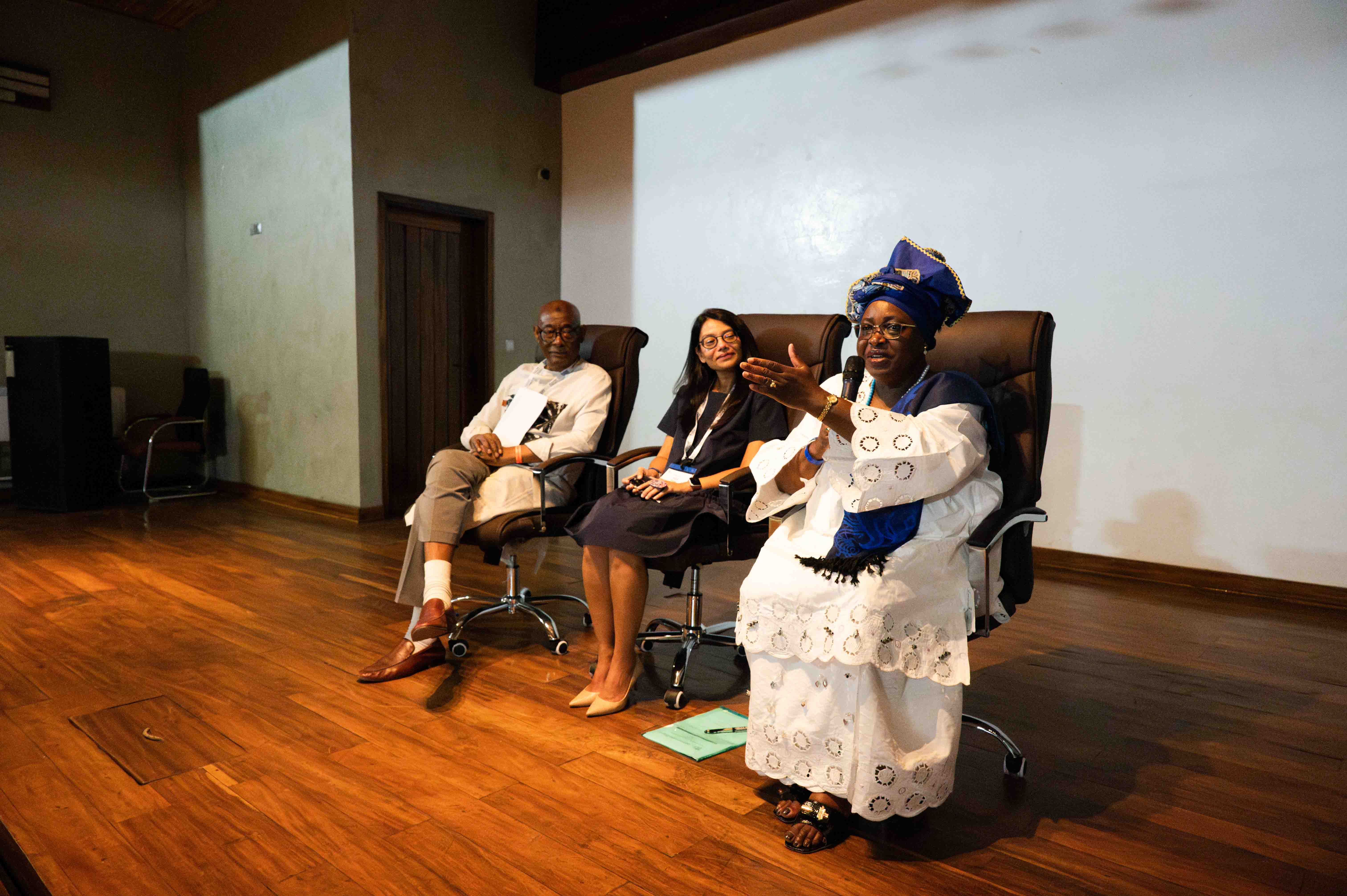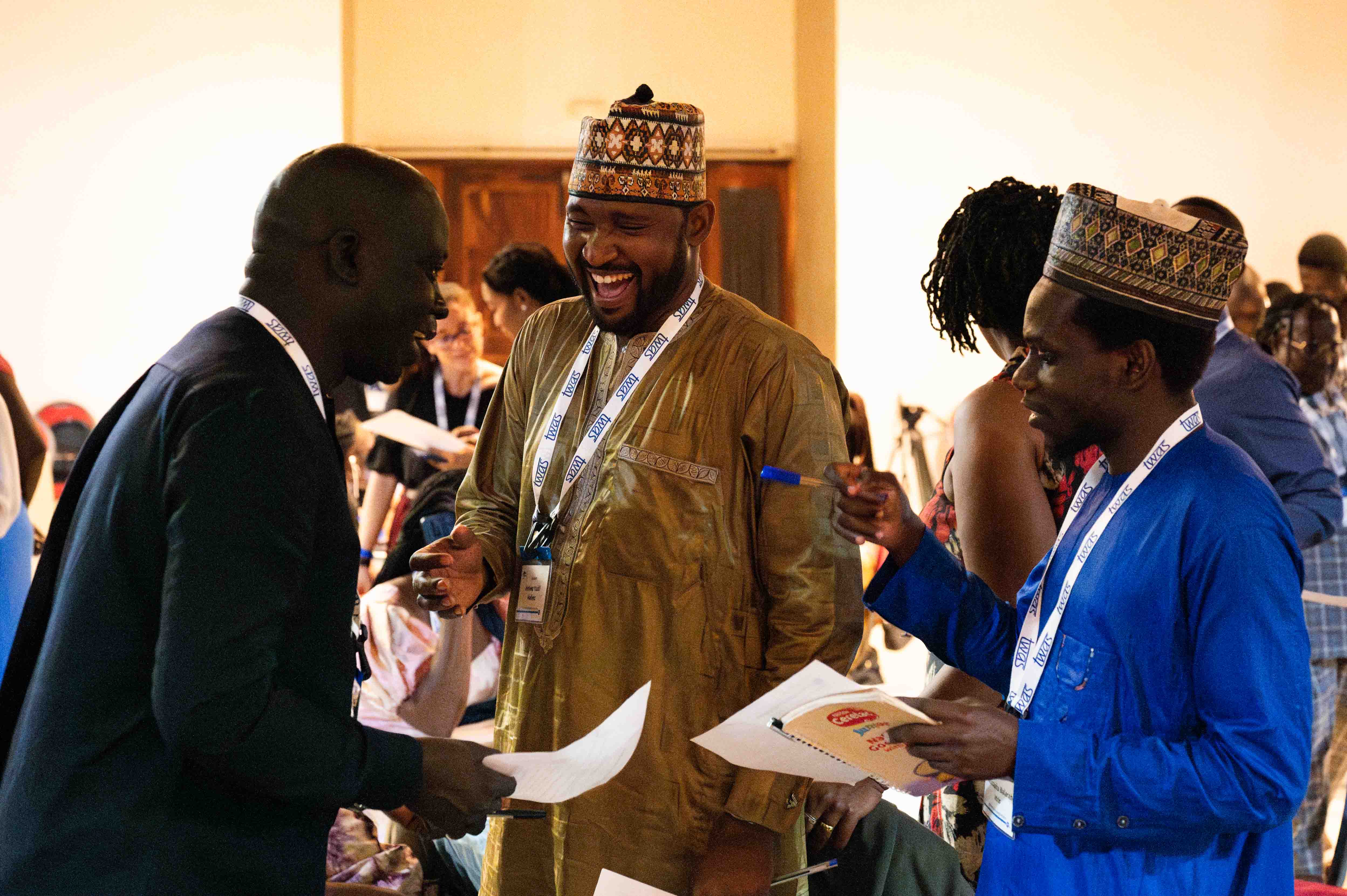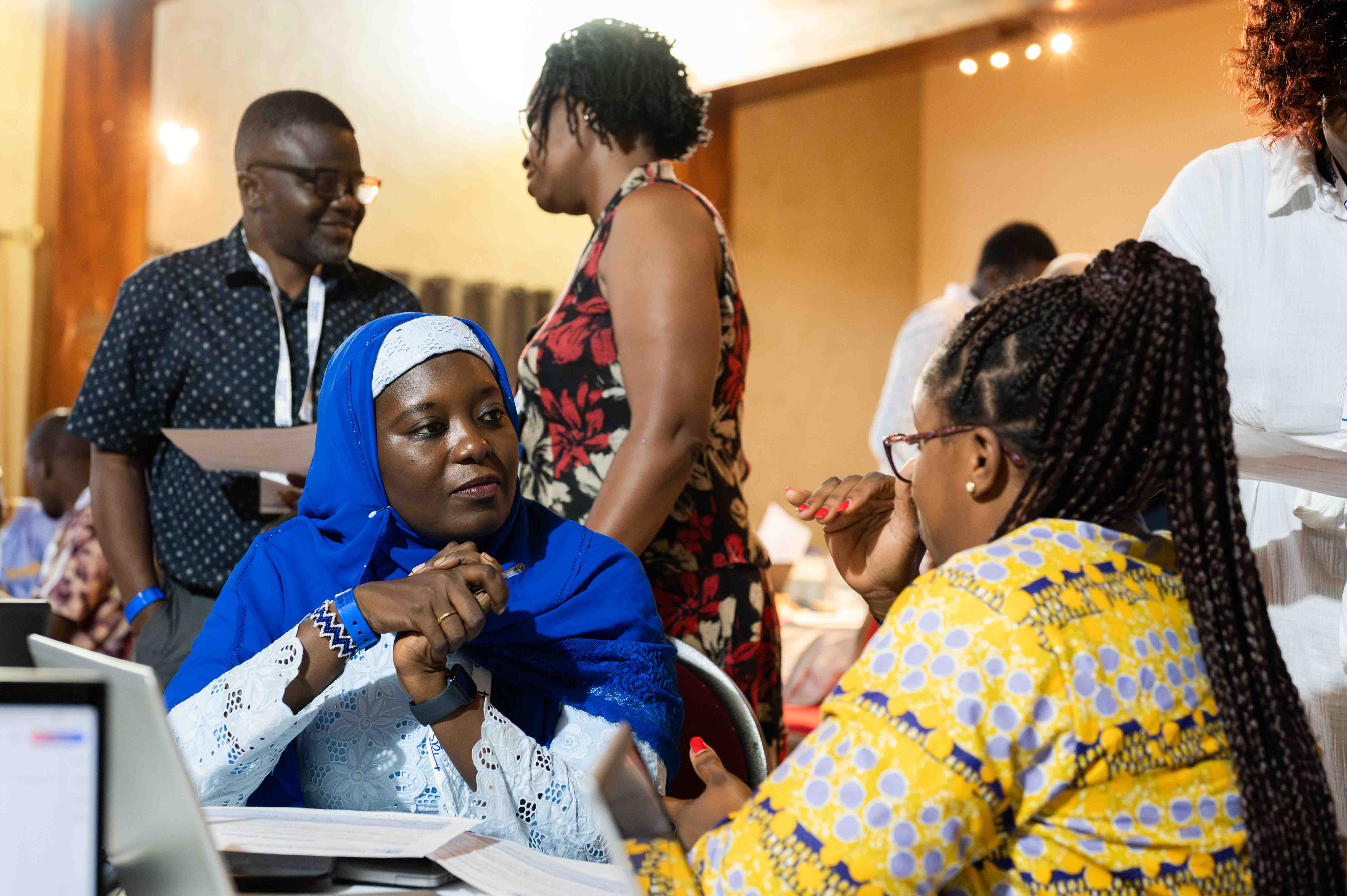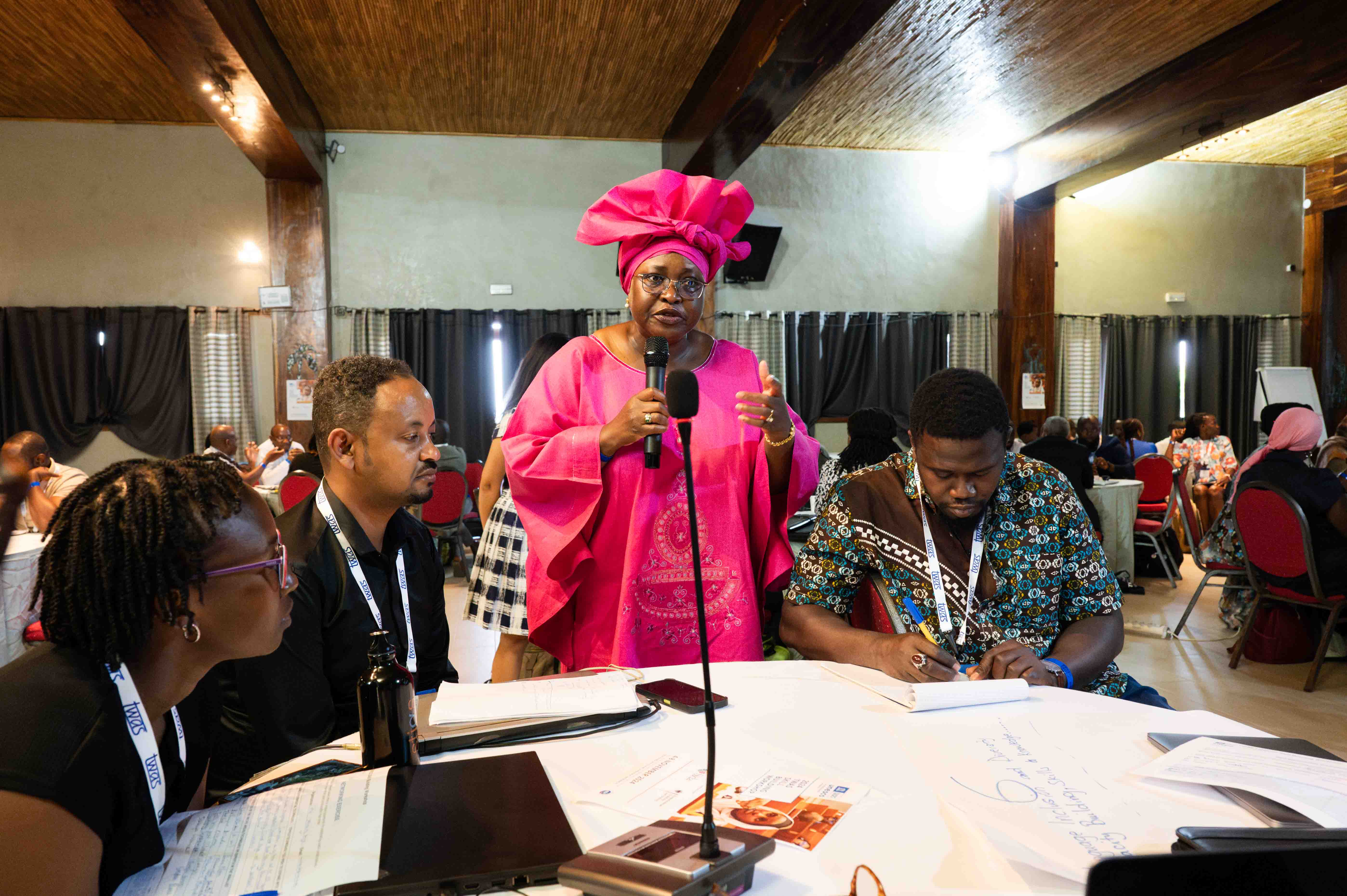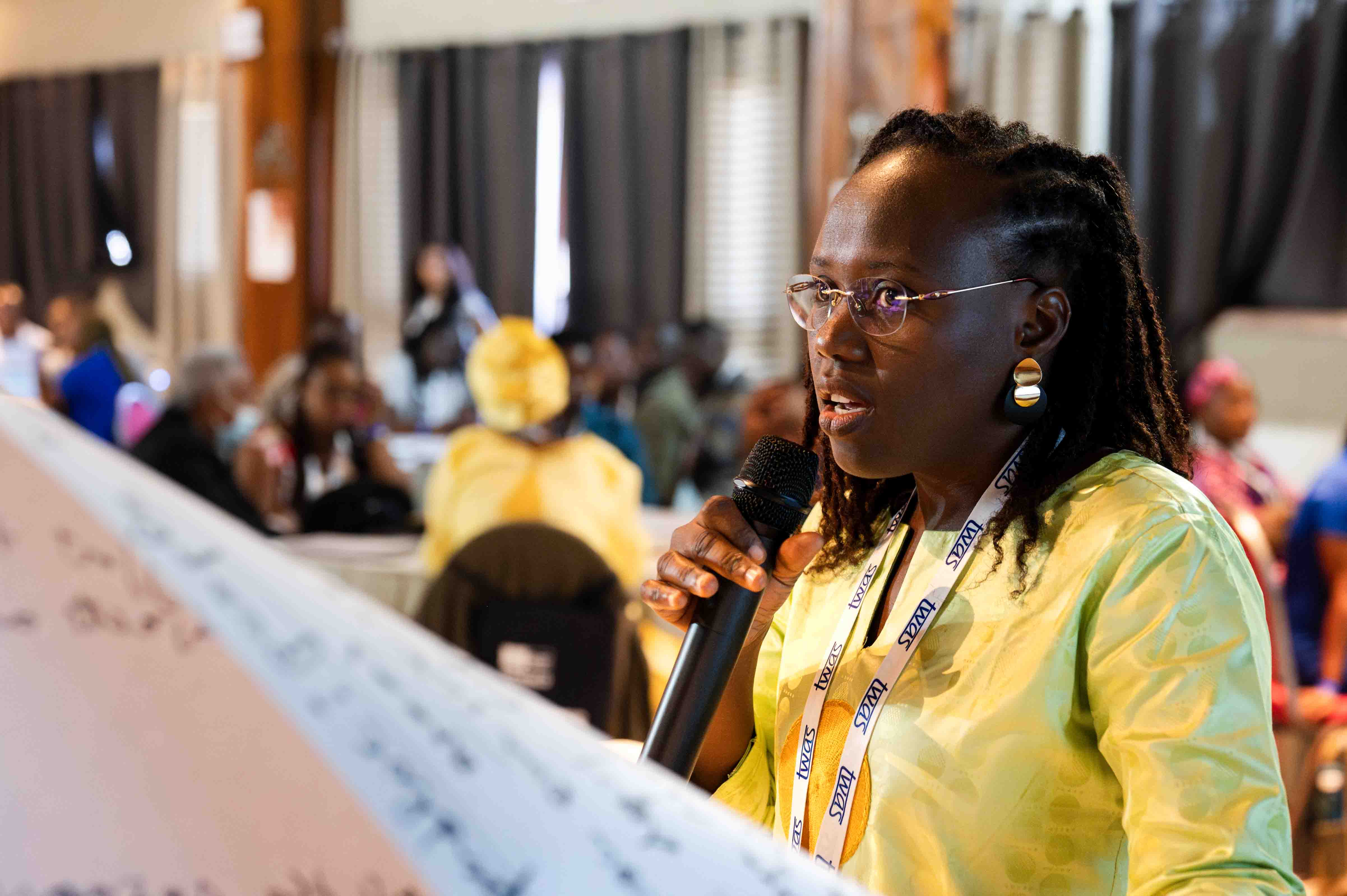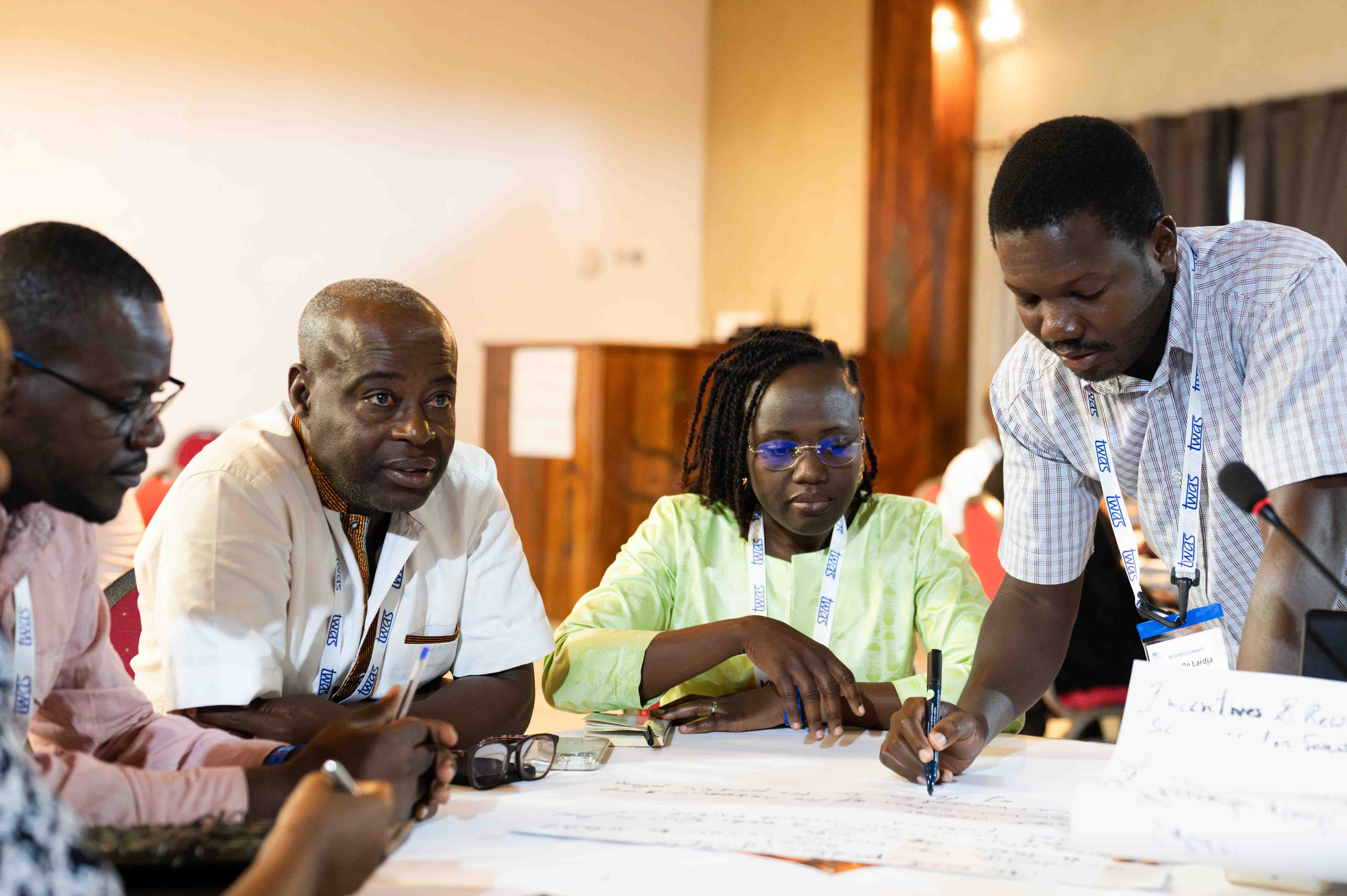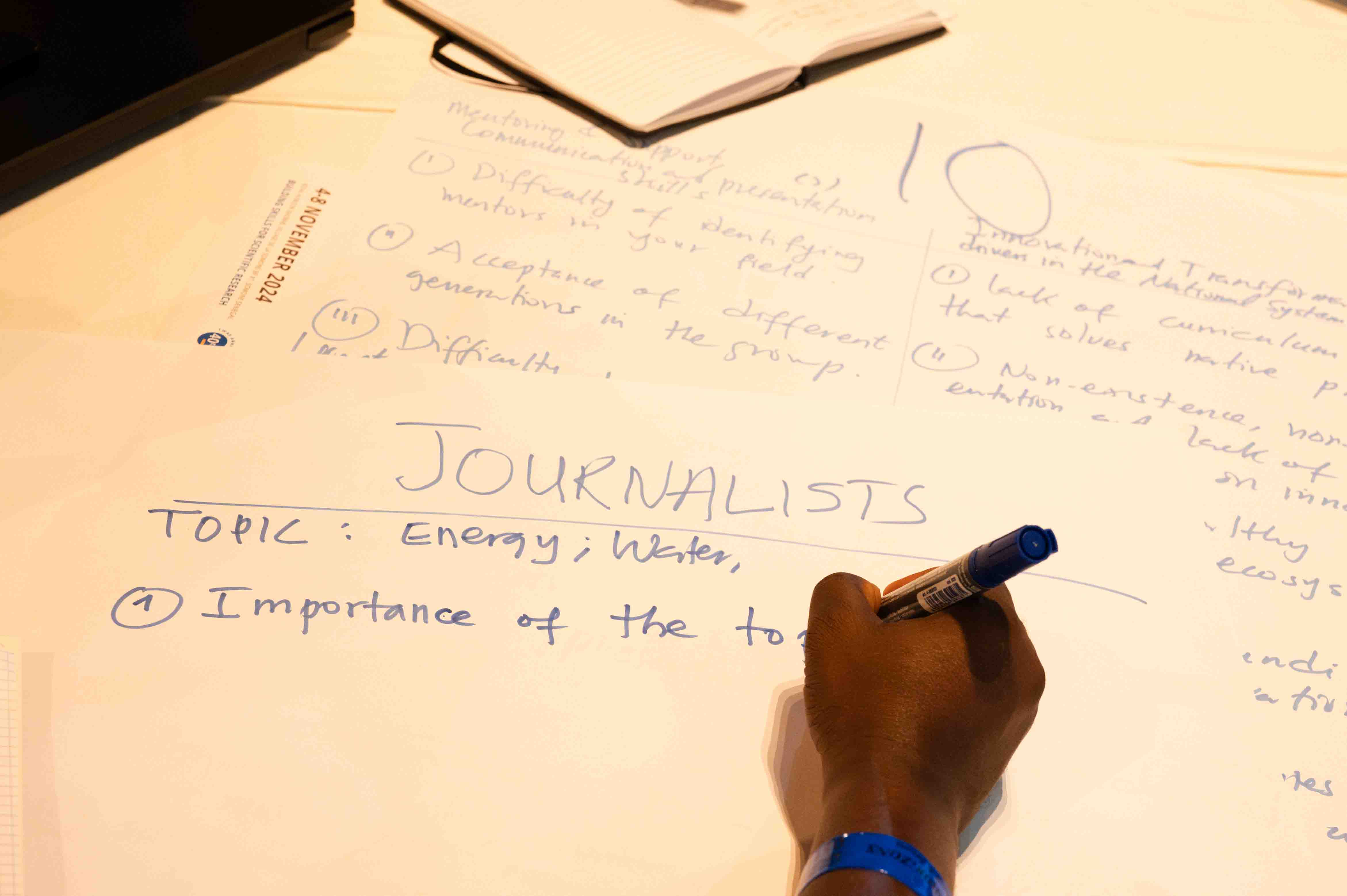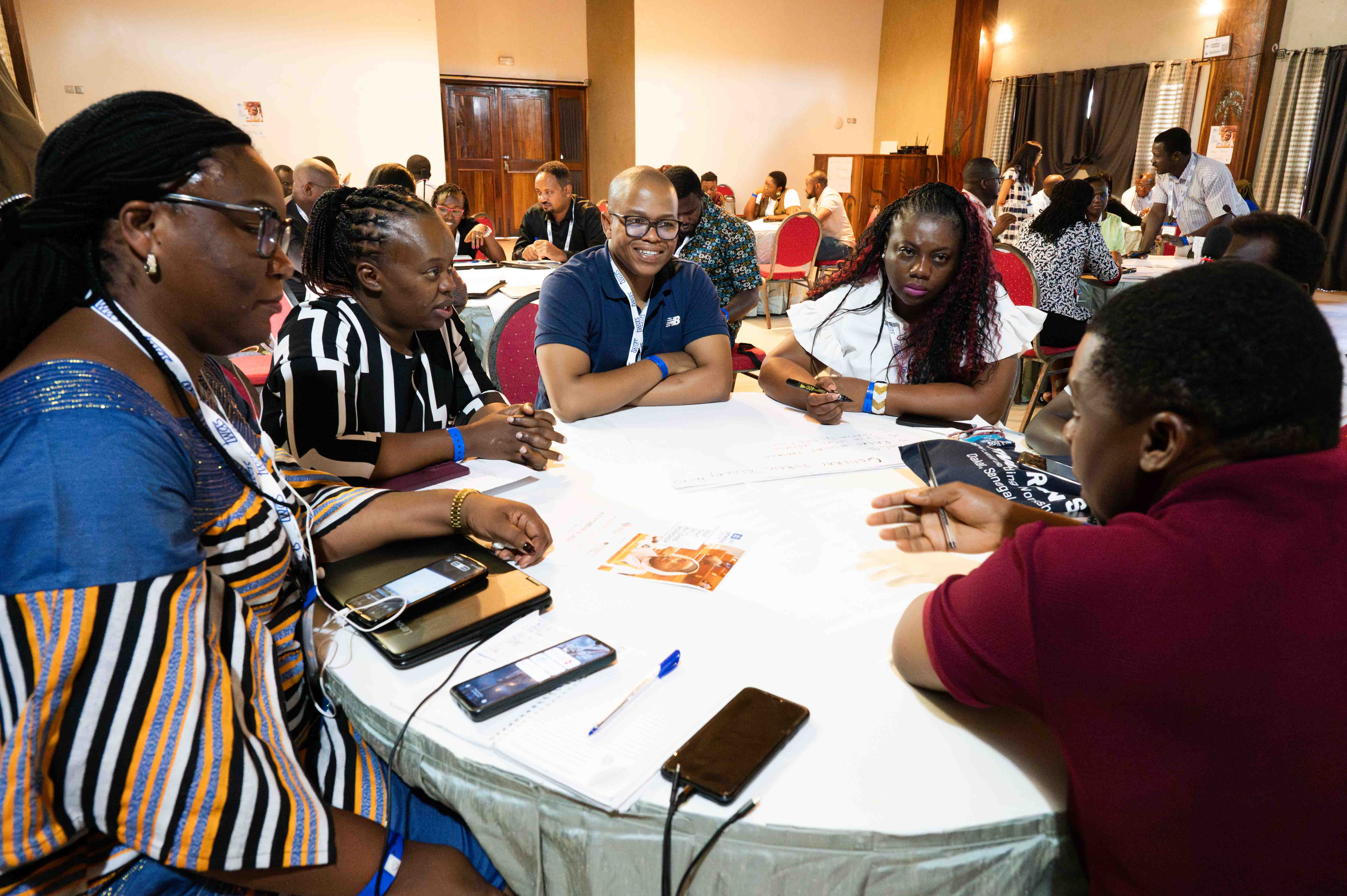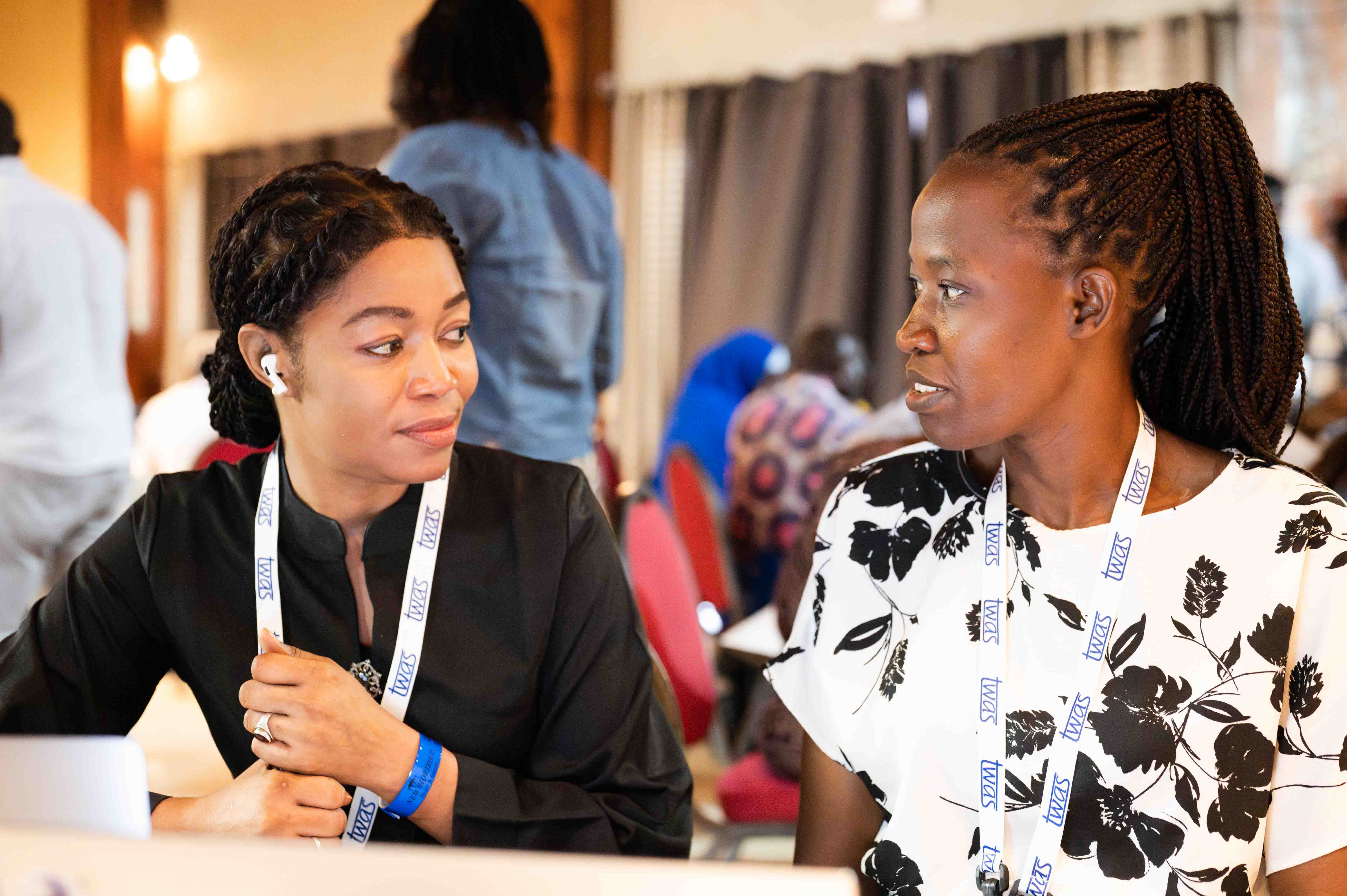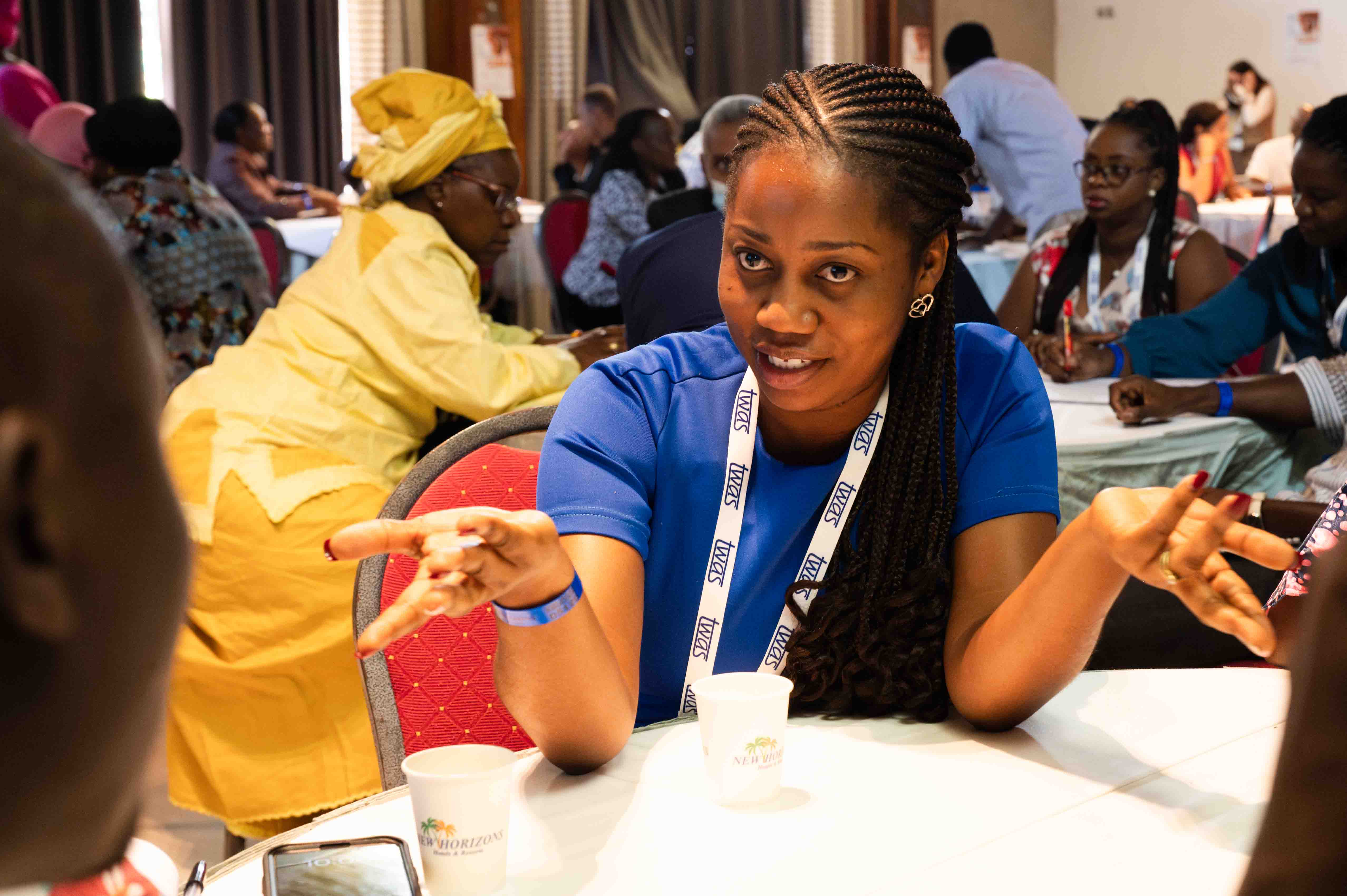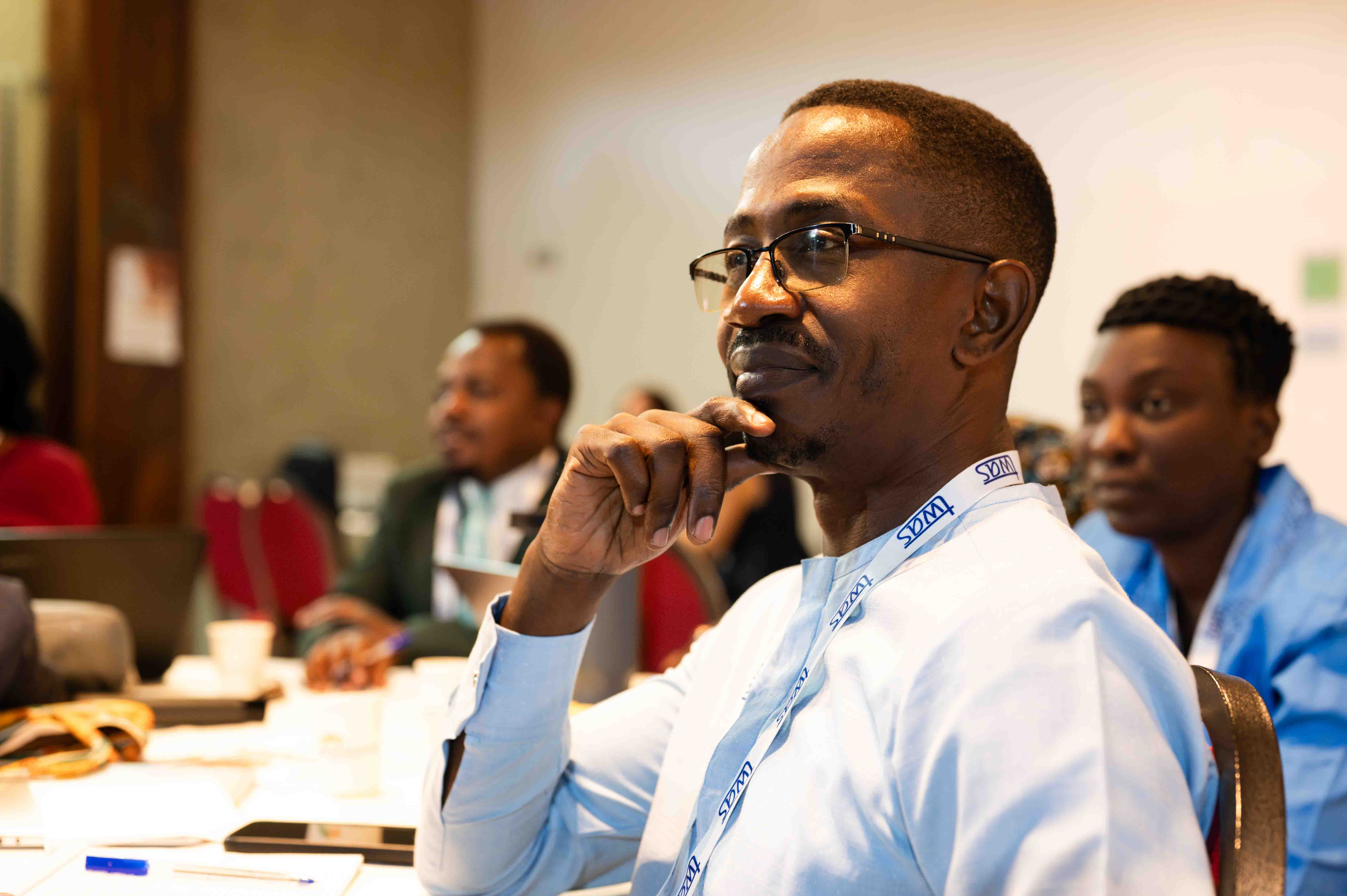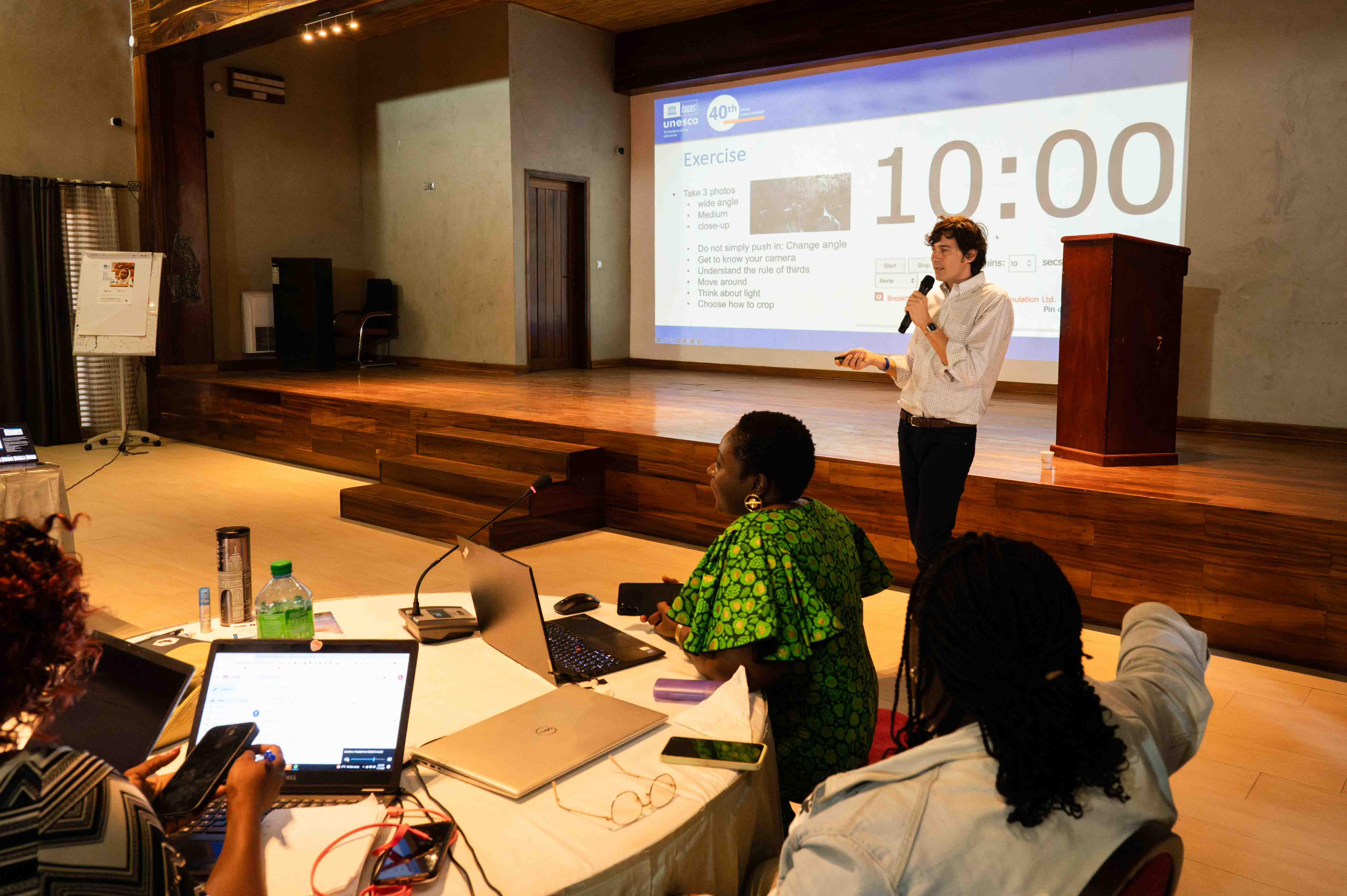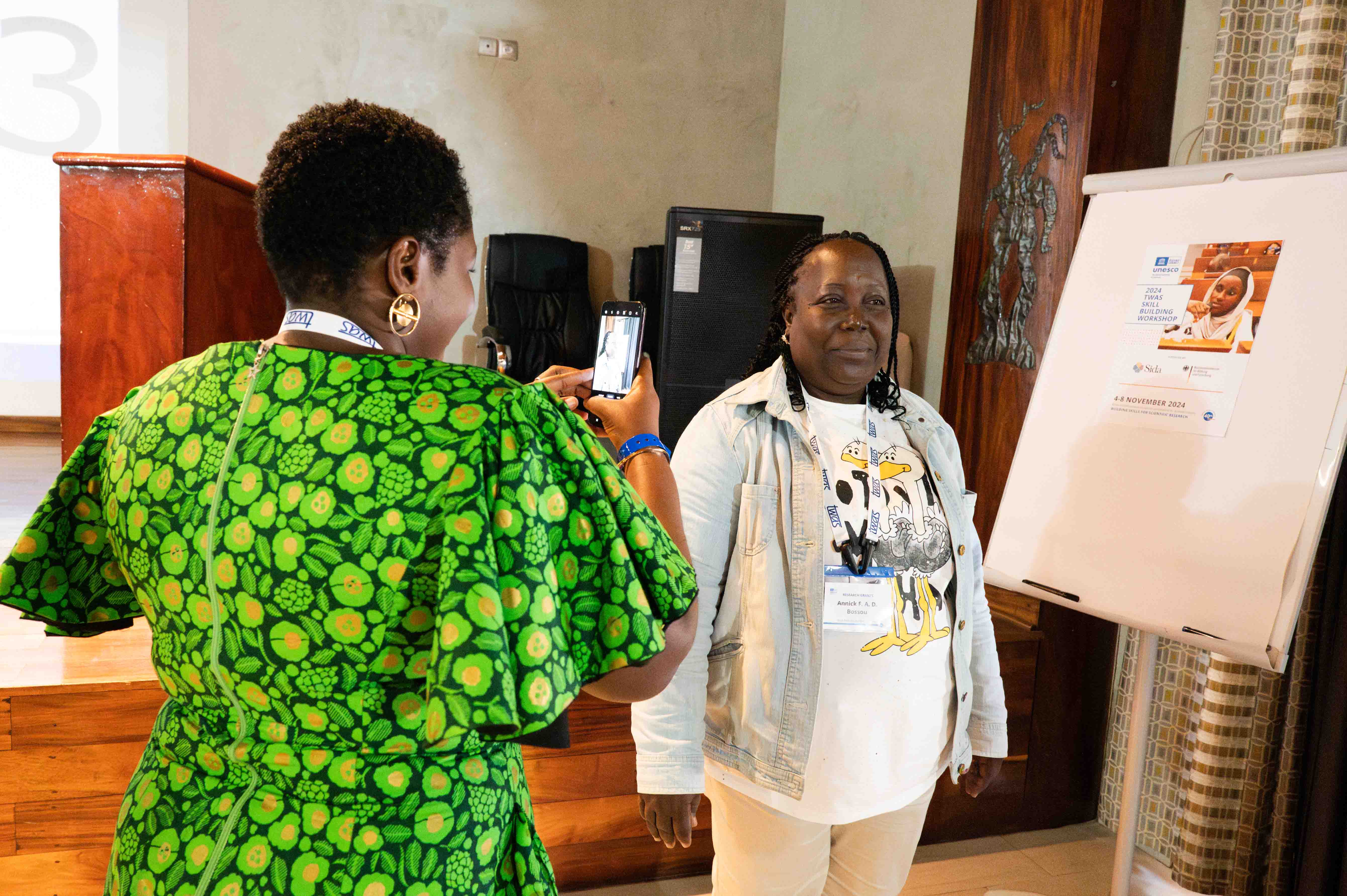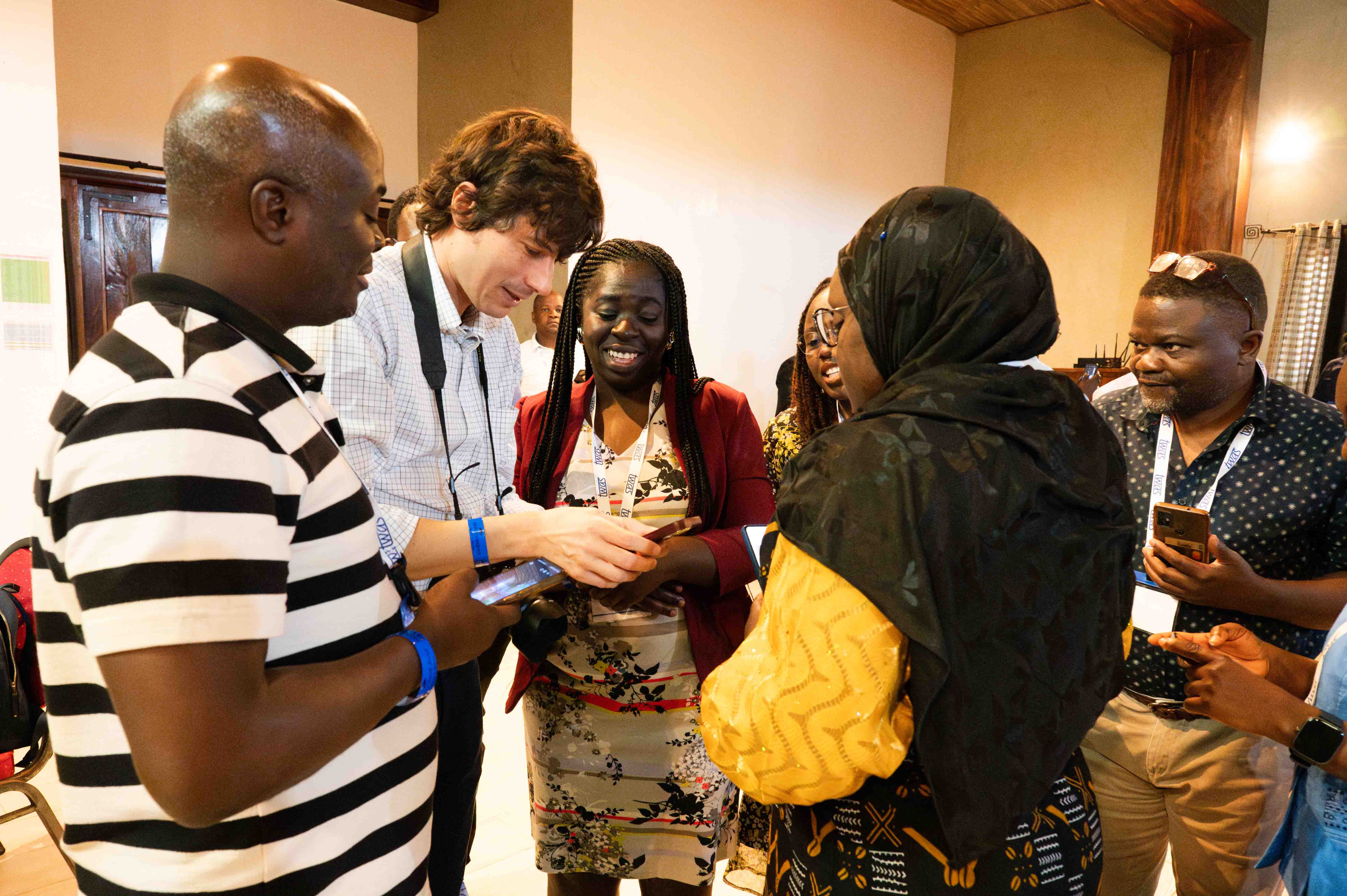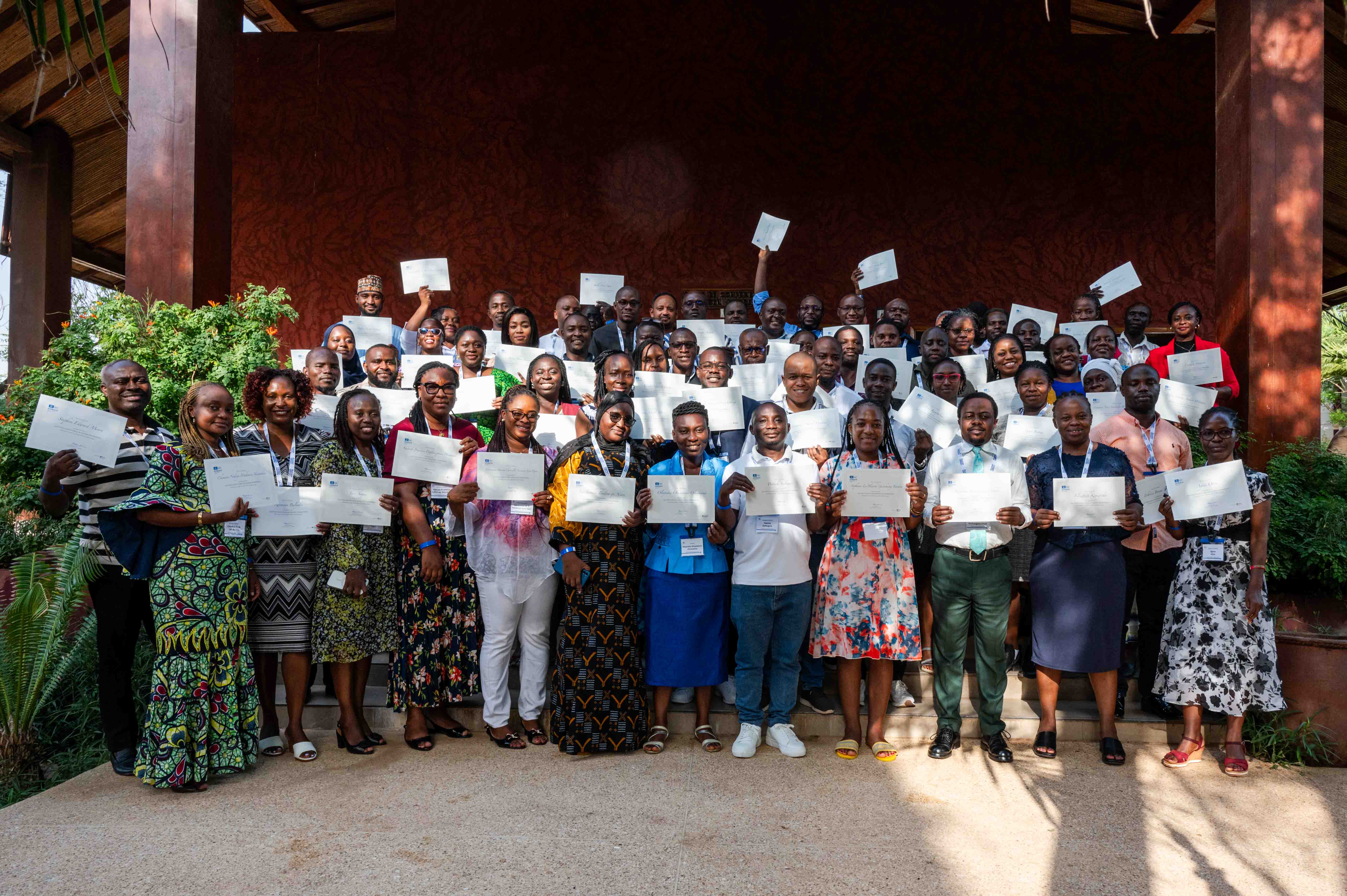A scientific career entails more than producing new knowledge—other skills such as science communication, identifying predatory journals, and research grant proposal writing can make or break a career. Sixty-two researchers from 20 African countries had the chance to develop these abilities during the 2024 TWAS Skill Building Workshop, which took place in Dakar, Senegal, from 5–8 November 2024.
Combining presentations, hands-on exercises, and networking opportunities, the event was designed to enhance the potential of African scientists, fostering a stronger scientific community across the continent.
This workshop marked the first-ever combination of two of TWAS’s grant programmes: the TWAS Research Grants Programme, supported by the Swedish International Development Cooperation Agency (Sida), and the Seed Grant for New African Principal Investigators (SG-NAPI) Programme, supported by the German Federal Ministry of Education and Research (BMBF).
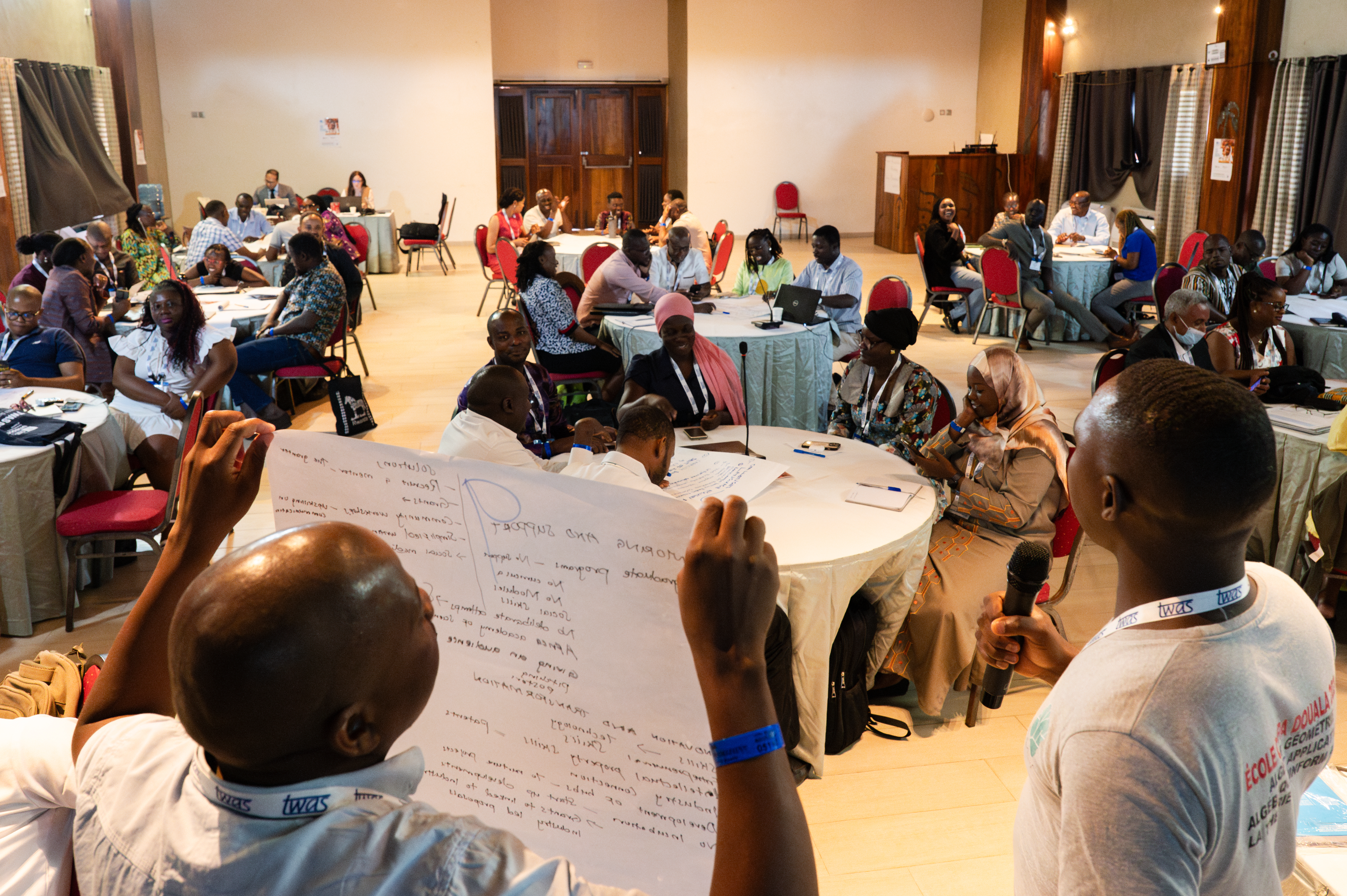
Inspiring the next generation of scientists
The event kicked off with two keynote lectures. Senegalese scientist Moctar Touré, a TWAS Fellow since 1985, welcomed participants by sharing insights about his personal life and his scientific career. As a researcher, Touré worked in the fields of agronomy, soil chemistry, desertification, and sustainable land management. As a science manager, he was instrumental in the design and management of the nascent Senegalese agricultural research system.
"Each challenge taught me the importance of resilience and perseverance: they are key to overcoming obstacles and achieving growth," he said, adding that collaborations and teamwork are essential in the scientific endeavor.
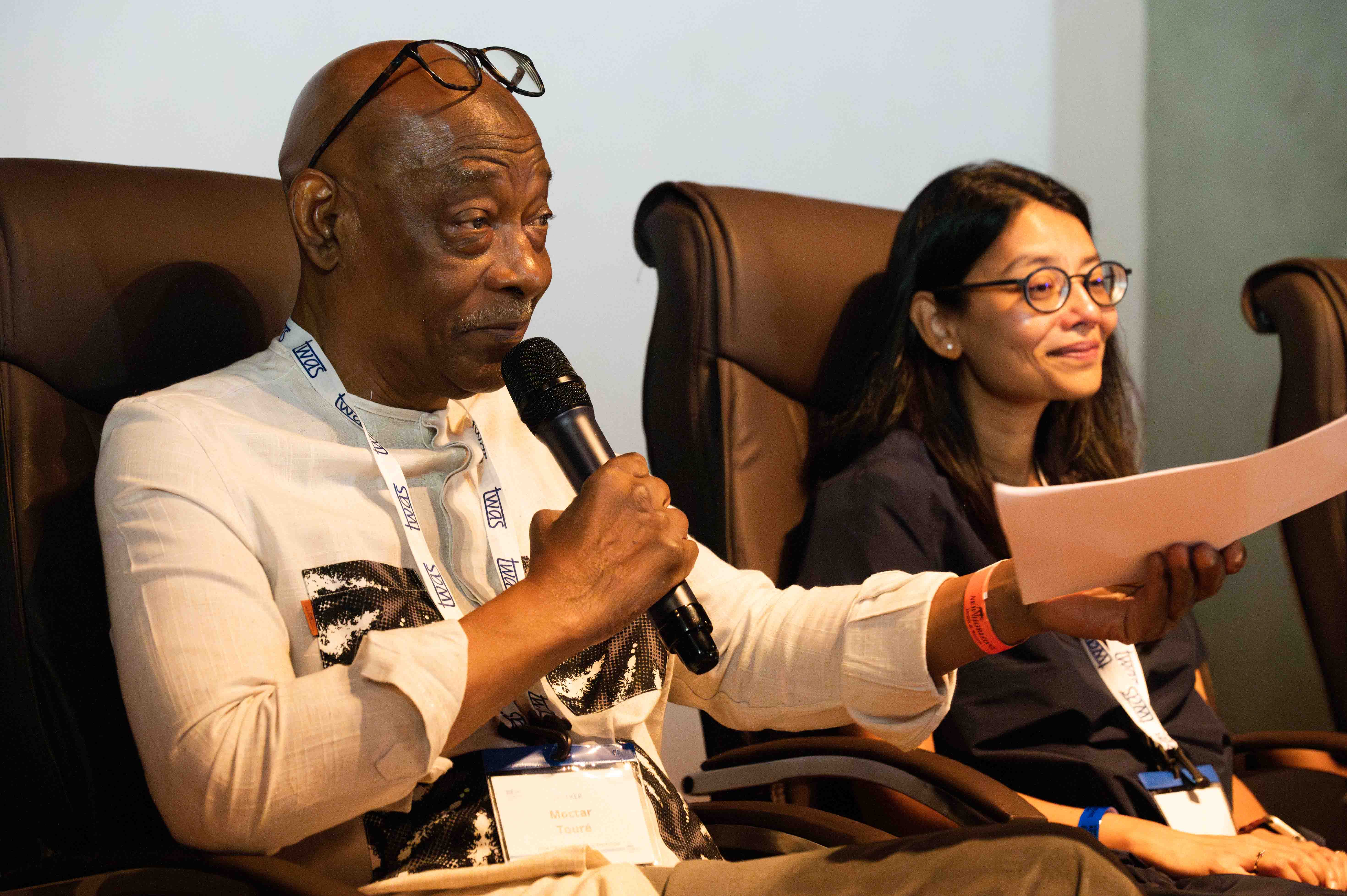
Today, mentoring the next generation of scientists has become Touré’s passion. "There is no greater joy than seeing young minds flourish and contribute to the body of scientific knowledge", he advised the attendees. "As you progress in your careers, remember to give back. Start mentoring, right now, the next generation and help them navigate the path you once walked in since you kicked off your own career.”
Then, Elizabeth Rasekoala, President of African Gong: The Pan-African Network for the Popularization of Science & Technology and Science Communication, stressed the importance of encouraging women to pursue careers in STEM and ensuring that science has an impact on local communities.
But the main focus of her keynote was science communication, both "an imperative" and "a game-changer" for researchers. "Science communication is linked to the accountability we have,” Rasekoala said. “And the accountability we must have to make sure that the public benefits from our knowledge.”
"We have a responsibility as African professionals. What's in it for our people?" she asked workshop participants. The following day, participants had the chance to answer this question in a session facilitated by Rasekoala. The session provided opportunities for discussions on communicating science to diverse audiences and included a practical communication exercise.
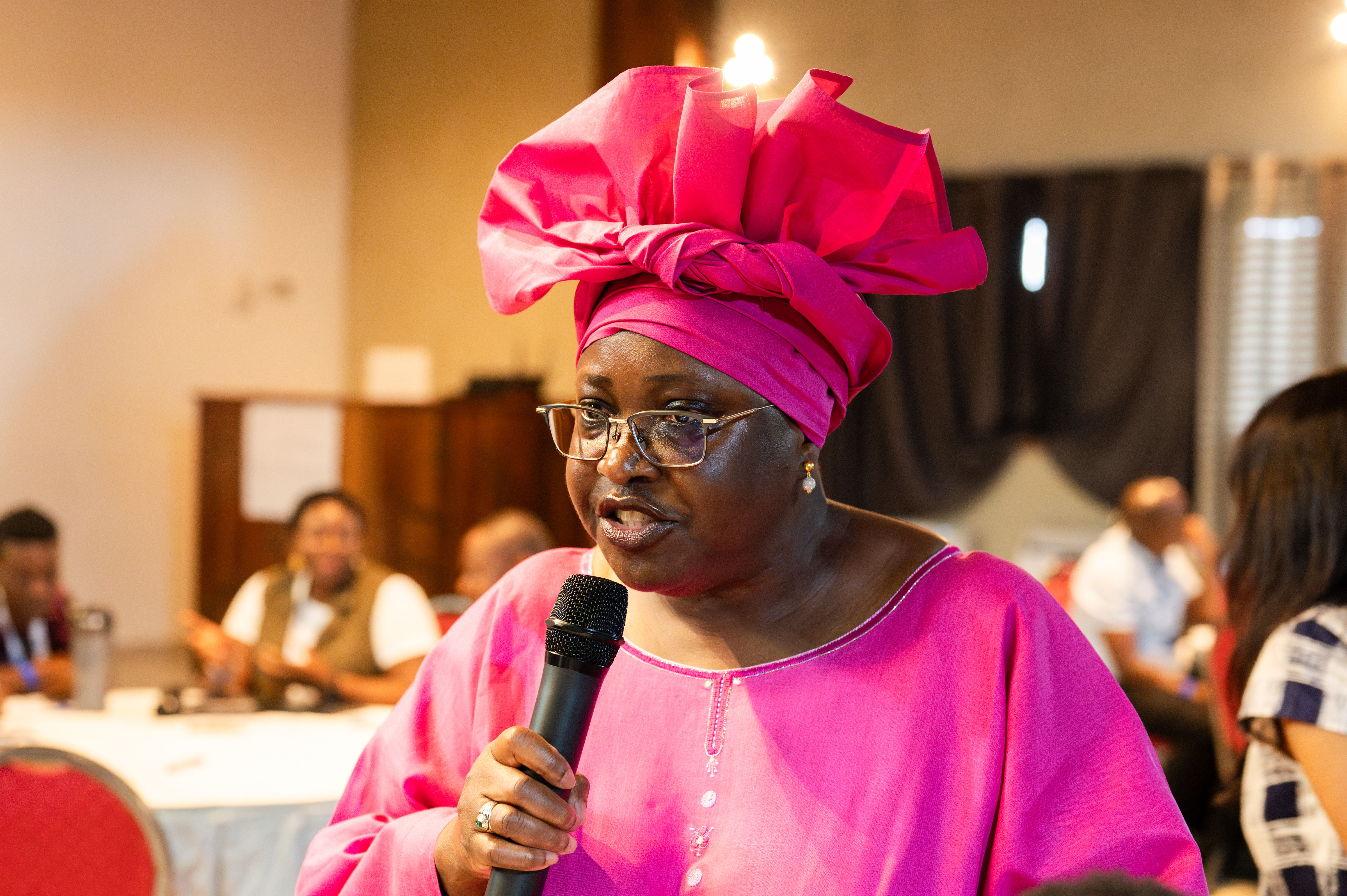
Practical skills for modern-day researchers
Across four days, workshop participants had the chance to deepen their knowledge on soft skills that are critical to progressing in their careers and fostering sustainable development in Africa. They also discussed their research with their peers and reflected on how their work can help achieve the UN's Agenda 2030.
The 62 grantees attending the current workshop in Senegal were from Benin, Burkina Faso, Cameroon, Cote d’Ivoire, the Democratic Republic of the Congo, Ethiopia, Gabon, Ghana, Guinea-Bissau, Kenya, Lesotho, Malawi, Mali, Mauritania, Niger, Nigeria, Senegal, the United Republic of Tanzania, Togo, Uganda, and Zimbabwe.
Thirty-two of them are some of the over 2,500 beneficiaries of the TWAS Research Grants Programme, which has been running since 1986 and has been supported by Sida since 1992. Thirty researchers were beneficiaries of the TWAS SG-NAPI Programme, launched in 2021 and supported by the German Federal Ministry of Research and Education (BMBF). To date, SG-NAPI has already supported nearly 100 scientists.
Among the speakers were African beneficiaries of TWAS programmes, including Tamegnon Victorien Dougnon, a microbiologist and professor at the University of Abomey-Calavi in Benin. Dougnon leads the Research Unit in Applied Microbiology and Pharmacology of Natural Substances, and his work aims to bridge traditional medicine and modern science to address global health challenges. Dougnon, whose career was supported by two TWAS Research Grants, presented on both scientific and grant writing.
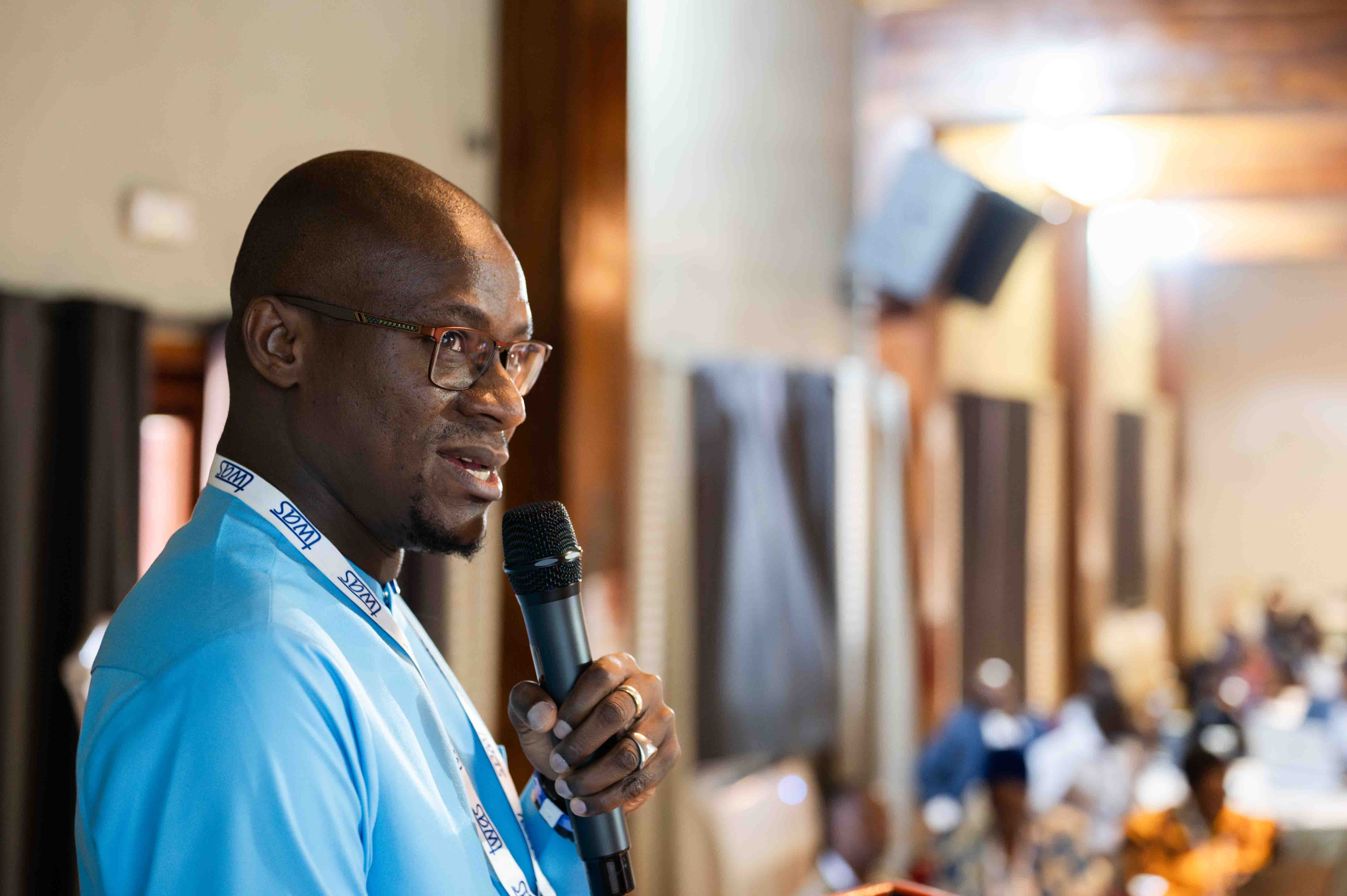
“Explain how you will achieve your objectives, outlining the steps, processes, or interventions,” he said of writing grant proposals. “And be detailed: Describe each step of your approach, including data collection, analysis, tools, and resources.”
The workshop also dealt with the climate crisis and how it brings about disasters such as droughts, flash floods, and changing patterns of viral infections.
"The impact of climate change is affecting our environment and has the potential to destroy our very existence: It is affecting our habitat, the air we breathe, the water we drink, and the food we eat," warned climatologist Nana Ama Browne Klutse, who received a TWAS Research Grant in 2014.
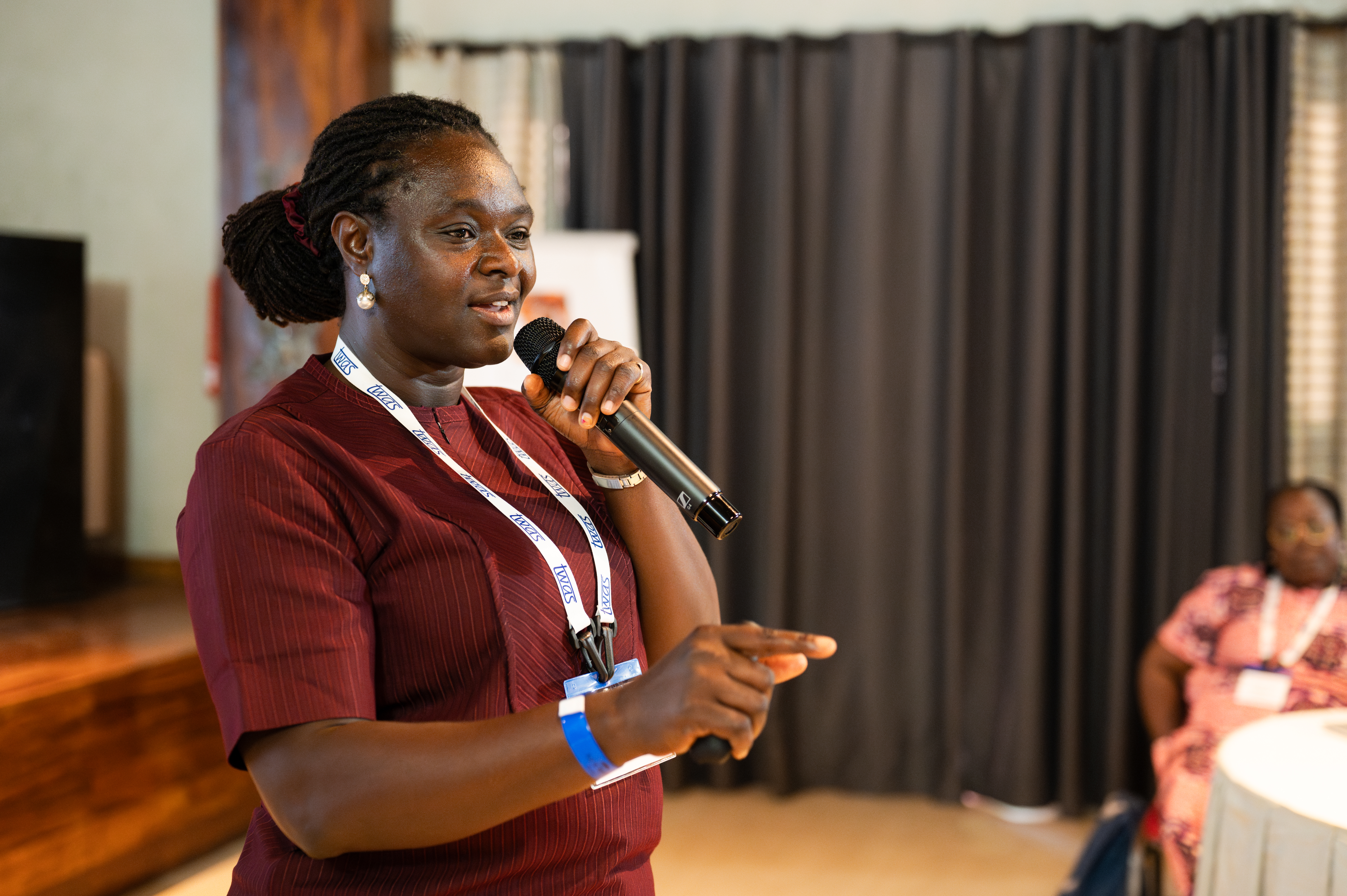
Klutse currently is Head of the Department of Physics at the University of Ghana, the Vice Chair of Working Group 1 of the Intergovernmental Panel on Climate Change (IPCC), and a member of the Scientific Board of UNESCO's International Basic Sciences Programme.
Among the speakers were also two TWAS staff members. TWAS Associate Programme Officer Payal Patel acted as a facilitator throughout the workshop and led sessions on networking and the SDGs. TWAS Public Information Officer Giovanni Ortolani held a session on 'Showcasing science through multimedia content and acknowledging donors', which included a hands-on exercise on photography.
A unique experience for researchers in the African continent
If the workshop is a stepping stone in the participants' careers, in many cases a TWAS grant laid the foundations of their academic journeys.
"Thanks to TWAS's SG-NAPI Programme I was able to procure equipment that helped me and my students conduct analytical work in the laboratory and attend a conference in Ghana with one of my master’s students," said Faith Kandie, a lecturer and water quality researcher at the School of Sciences and Aerospace Studies at Moi University, Kenya. In Ghana, they were also able to present their work on emerging contaminants in surface water systems in western Kenya.
Kandie is devoted to environmental remediation and is currently working on several research projects focusing on surface and wastewater pollution, organic micropollutants, and climate change.
"At this workshop in Senegal, I met several experts from Africa and I was able to exchange ideas and even discuss areas of collaboration through different disciplines," she said.
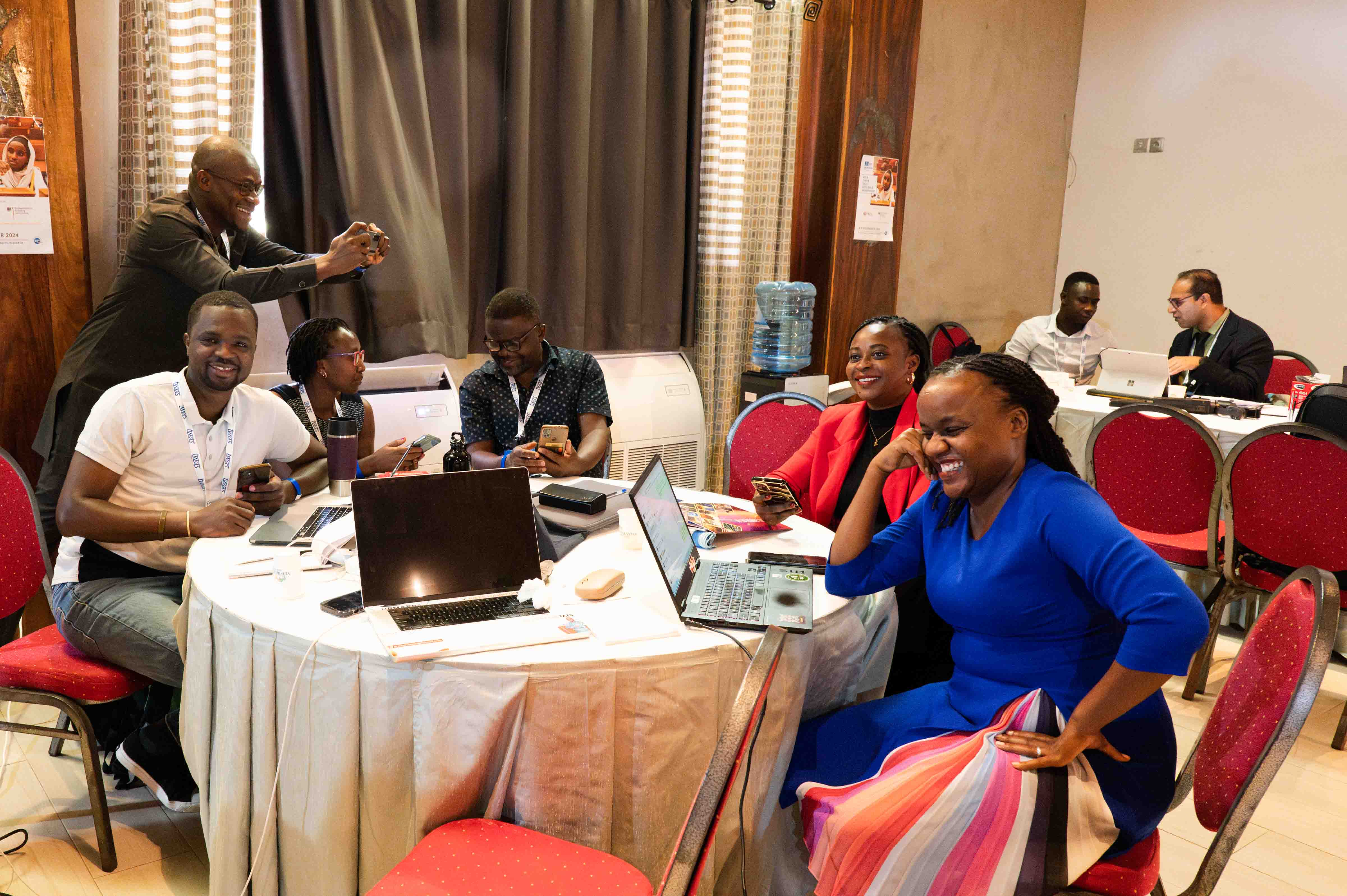
SG-NAPI grantee Rosemary Bulyaba, Dean of the Faculty of Agricultural Sciences at Uganda Christian University, in Mukono, Uganda, agrees. "I have been able to identify other scientists on the African continent that I can work with," she said. Bulyaba emphasized that collaboration across countries and institutions is a powerful way to attract funding to solve Africa’s grand challenges. It also facilitates the shared utilization of resources such as laboratories and equipment, and foster capacity building through staff and student exchanges. "I am already thinking about how we are going to collaborate more and undertake more projects" she said.
The workshop, she added, has also provided her with a unique opportunity to learn more about science communication. This, she noted, is a critical area for scientists, especially because they often lack the skills to communicate effectively about their research and findings.
"We need to know more about how to communicate our ideas to society and eventually bring people closer to us," said Stephen Moore, a senior lecturer at the Department of Mathematics at the University of Cape Coast, Ghana.
An expert in Artificial Intelligence (AI), he is also a co-founder of the Ghana Natural Language Processing, an open source initiative focused on Ghanaian languages, and the Director of the Center for Artificial Intelligence Research (Coastal AI). The TWAS Research Grant he received in 2021 allowed him not only to purchase scientific literature in the fast-growing field of AI but also a workstation able to run simulations faster. Also, the grant allowed him to attend conferences and workshops, and present his work in many countries, including Kenya and Rwanda.
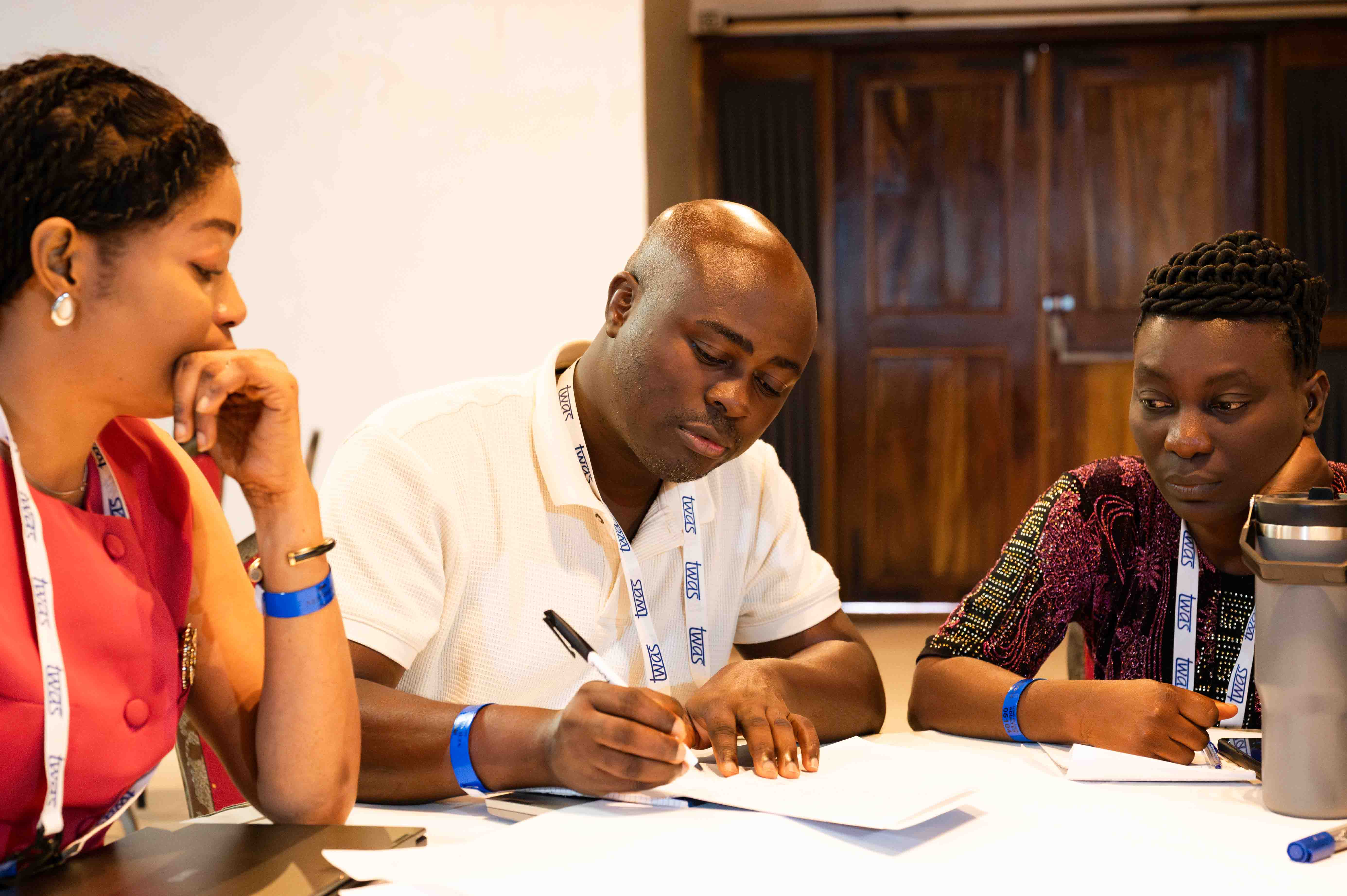
International connections are pivotal for Africa's future, says SG-NAPI grantee Cynthia Laar, a wetland ecosystems expert working as senior research scientist in the Water Resources Research Centre at the Ghana Atomic Energy Commission since 2010.
"We are forming teams, and we are hoping that we can continue to build collaborative research among our colleagues," she said after the final session of the event.
"This workshop will continue to help us build projects on a larger scale, instead of just staying in our home countries and doing individual research."
Giovanni Ortolani
More photos are available here and on the TWAS Flickr page.
